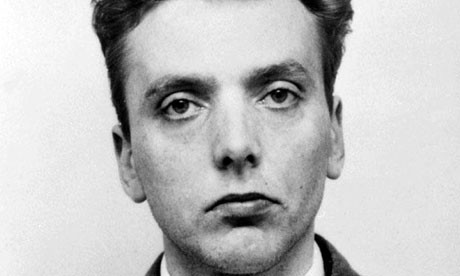Ian Brady Describes Moors Murders as 'Petty' Compared to Politicians' Behaviour

Moors murderer Ian Brady has claimed his killing of five children was "petty" compared to the actions of politicians and soldiers as he begins his appeal to starve himself to death.
Brady, 75, was making his first public appearance in years to argue before a mental health tribunal that he is sane, and should be transferred from Ashworth Hospital to a Scottish prison where he hopes to end his life by starving to death.
Brady, who was found guilty of the torture and murder of five children along with Myra Hindley, has been force fed food through a tube at the Merseyside hospital for the past 14 years while he has been on hunger strike.
There is no legal precedent to force feed a prisoner on hunger strike in Scotland.
Before the tribunal began, Brady told a psychiatrist who was examining his mental health that the infamous 1960s murders were an "existential exercise" which was part of a "personal philosophy and interpretation".
He also said he was "acting" when he was diagnosed with schizophrenia and a personality disorder almost 30 years ago.
Forensic psychiatrist Dr Cameron Boyd told the hearing, held in Ashworth and relayed by video to Manchester Civil Justice Centre, that Brady said his behaviour was "petty compared to politicians and soldiers in relation to wars".
Brady appeared via video link with a tube attached to his nose, which has been feeding him since 1999.
He was not asked about the whereabouts of 12-year-old Keith Bennett - the only one of his victims whose body was never found.
According to his lawyers, Brady has not received any treatment for mental illness for the past 14 years.
Dr Adrian Grounds, a senior lecturer in forensic psychology, said Brady knew how to behave as if he had a mental illness after observing other inmates while in prison.
In a statement before the tribunal began, Brady's lawyers from the Scott-Moncrieff frim said: "Mr Brady's crimes are well known to the public. He has a full-life sentence and will never be released. He wishes to be discharged from hospital and returned to prison.
"Despite Mr Brady's requests to be transferred to prison, Ashworth hospital has maintained that he is mentally ill, and has fought for him to remain in the more comfortable environment of the hospital. Mr Brady's position is that he is not mentally ill and has not received any treatment for many years.
"Three professional mental health experts, instructed by his solicitors, who have assessed and met with him on several occasions over approximately the last 10 years have consistently reported that Mr Brady is not mentally ill."
His lawyers also argued that the cost of keeping Brady in hospital should be put in consideration. They said it costs approximately £300,000 per year to keep him there, compared to the average £40,000 a year it cost to hold a prisoner.
However, Grounds added: "I think it is simply inconceivable that as he is now, Mr Brady would be assessed as showing a degree of mental illness that warranted detention in hospital for treatment."
The tribunal is expected to last eight days. Hindley died in prison in 2002 after being sentenced to life in jail along with Brady in 1966.
© Copyright IBTimes 2025. All rights reserved.






















